News
WAEC Makes U-turn, Speaks On Ongoing Exams Amidst Proposed Workers’ Strike
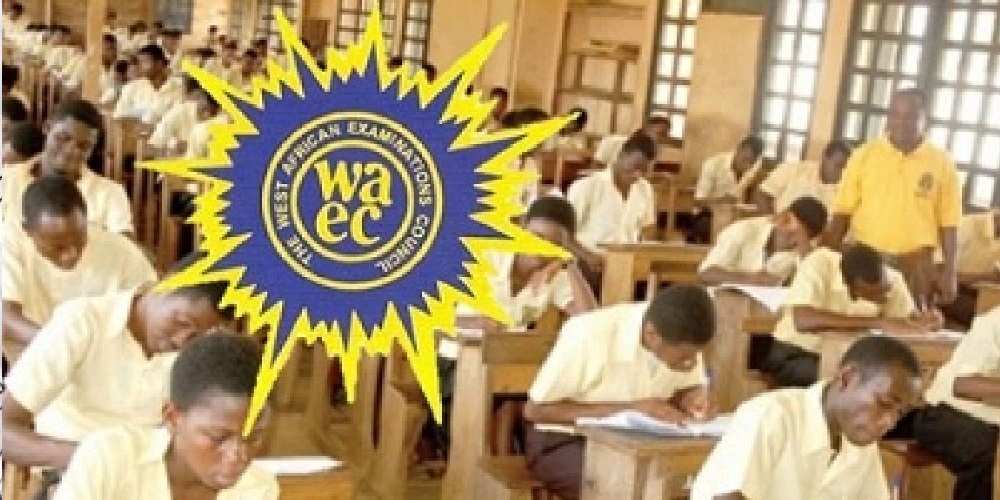
The West African Examinations Council (WAEC) has said the indefinite strike announced by Nigeria’s foremost labour unions would not affect the conduct of the ongoing West African Senior School Certificate Examination (WASSCE).
In an internal memo addressed to the principals of schools participating in the 2024 WASSCE, WAEC said the conduct of the internal examination continues irrespective of the strike.
“The attention of Management has been drawn to a notice of the Commencement of Indefinite Strike by NLC and TUC effective Monday, 3rd June 2024. Please be formally informed that the conduct of WASSCE SC 2024 goes on as scheduled,” the examination board said in a statement signed by the Ekiti Branch Controller for WAEC National Office, identified as T A Lawson.
WAEC said as much as it shares in the concerns of the unions and the generality of Nigerians, the examination is going on across the member Countries of WAEC and “the Nigerian child should not be put to a disadvantage of missing the exam.”
“For the aforesaid reason, WAEC will conduct the exam and School Principals, supervisors, parents and the general public should please take note and make adequate arrangements for their candidates to sit the exam,” the statement added.
A similar statement signed by the Ikeja Zonal Coordinator of the examination body, T O Danjuma, was also shared with schools within the zone.
But the office of the Head of Nigeria’s Office of WAEC, Amos Dangut, has said the memo shared with the stakeholders was not for public consumption.
The spokesperson for the examination, Motorola Adesina, in a telephone interview with PREMIUM TIMES, also denied the claim that WAEC had dared the labour unions, even as she appealed for understanding.
She said the examination is being conducted across four member states of WAEC and that the timetable and schedules are the same across the countries.
Mrs Adesina said: “WAEC can never dictate to the Nigerian labour unions, but this is a passionate appeal for understanding for the sake of the future of the affected Nigerian children.”
The Nigeria Labour Congress (NLC) and the Trade Union Congress of Nigeria (TUC) on Saturday directed its affiliates to mobilise for a total indefinite strike from Monday, 3 June.
The industrial action is expected to disrupt activities in schools, hospitals, and airports, which may lead to power outages, fuel scarcity, and transportation disruptions across the country.
The strike is to force the government to agree on a new minimum wage for workers as well as review the increase in the price of electricity for some consumers.
The labour unions are currently at loggerheads with the Nigerian government over negotiations for a new minimum wage. The current N30,000 minimum wage took effect in 2019, and the union is now negotiating a higher minimum wage with the government.
The NLC initially requested N600,000 but has now settled N494,000. However, the government rejected the amount, saying it is unsustainable and warning it could destabilise the economy and negatively impact over 200 million Nigerians. The government said it is offering N60,000, an amount the labour leaders reject, leading to a deadlock and a declaration of strike by the labour unions.
News
Benue LG chairman gives Fulanis 48hrs to leave all farmlands

The chairman of Agatu Local Government Area in Benue State, James Melvin Ejeh, has given Fulani herdsmen a 48-hour notice to leave all agricultural lands.
This announcement was made during a stakeholders’ meeting on Saturday, April 26, 2025, at the council secretariat in Obagaji.
The meeting included traditional leaders, representatives from the Fulani community, youth leaders, and security personnel to discuss the increasing concerns regarding herders’ activities on farmland as the planting season nears.
The Chief Press Secretary to the Agatu LGA Chairman, Obochi Solomon, reported that Ejeh highlighted the importance of safeguarding agricultural activities in Agatu in light of the upcoming planting season.
He remarked that agriculture is essential to the local economy and that farmers should have unhindered access to their lands.
Ejeh also acknowledged the current peace in the region but reiterated that maintaining uninterrupted farming activities is of utmost importance.
“Our farmers must cultivate without disruption. We will do everything necessary to create a safe environment for them,” he said.
The statement further disclosed that during the meeting, the Ado of the Fulani requested a one-week extension to allow the herders to prepare for their relocation, a request that the council approved.
The CPS noted that the General Youth Chairman of Agatu LGA, Oloche Silas, committed on behalf of the Agatu youth to support the peaceful evacuation process and to avoid any acts of violence.
Security personnel, including members of the Nigeria Police Force and the Department of State Services (DSS), were reported to have praised the peaceful resolution of the issue and promised to offer necessary assistance during the relocation.
Additionally, representing the Och’Agatu, Chief John Agidani, spoke at the meeting, commending the leadership of the Council Chairman and urging all parties to adhere to the agreement.
News
Five suspected kidnappers eliminated by police in Delta

Five alleged kidnappers have reportedly died after a fierce gun battle with operatives of the CP-Special Assignment Team.
The suspects were confirmed dead in a hospital they were rushed to for medical attention.
Delta State Police Public Relations Officer, SP Bright Edafe who confirmed the development in a statement, stated that the incident occurred on 21st April 2025.
The police image maker disclosed that operatives of the CP-Special Assignment team, acting on intelligence relating to kidnapping in Ubuluku, Isseluku, Issele-Asagba, and environs by one Bello Abubakar and his gang members, stormed one of their hideouts in Agu-Amawbia forest, Anambra State.
SP Edafe pointed out that during the raid of the suspects hideout in the forest, the operatives recovered one AK-47 rifle and one hundred and thirty-two rounds of live ammunition.
He further said the investigation was extended to another of their hideouts in a forest between Issele-Asagba and Utulu, where the said Bello Abubakar and his gang members were waiting in ambush.
According to the police image maker, the suspected kidnappers attacked the policemen in a fierce gun battle, but the team, who were aware of the battle ahead, reciprocated in like manner.
SP Edafe added that the manhunt for other injured fleeing suspects is ongoing.
News
Francophone Ambassadors, Nigeria Unite To Fight Against Climate Change
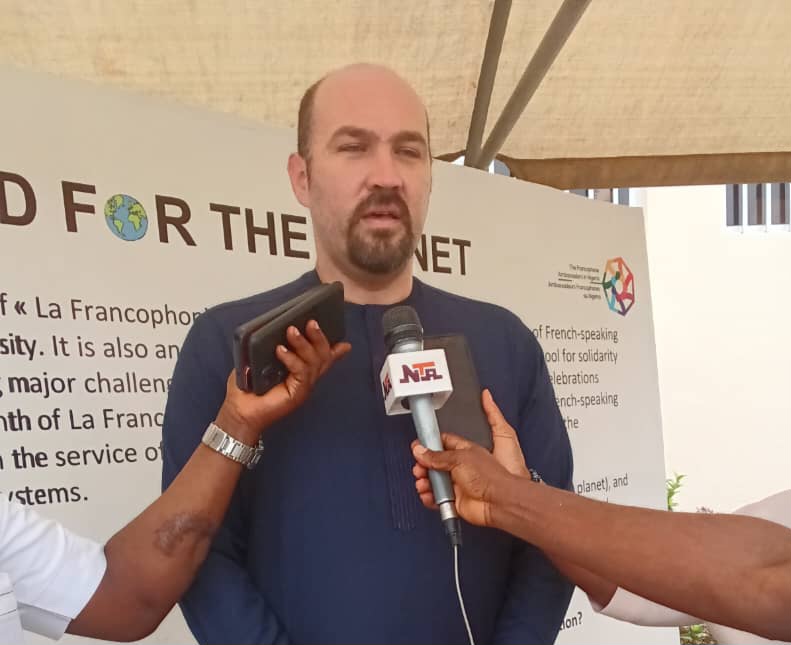



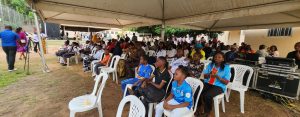
-
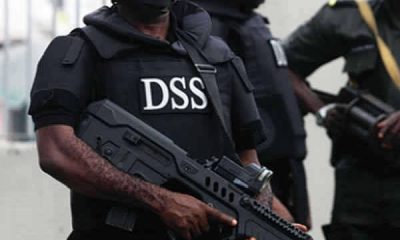
 News17 hours ago
News17 hours agoDSS arrests Army major for planning unrest in Delta
-
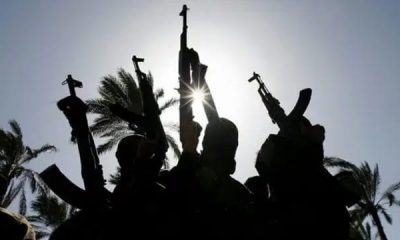
 News9 hours ago
News9 hours agoGunmen abduct two senior LG workers, three others
-

 News17 hours ago
News17 hours agoFCT minister, Wike announces new appointments
-

 Politics18 hours ago
Politics18 hours agoSee list of APC Delta stakeholders holding meeting in Abuja on power sharing formula with Oborevwori
-
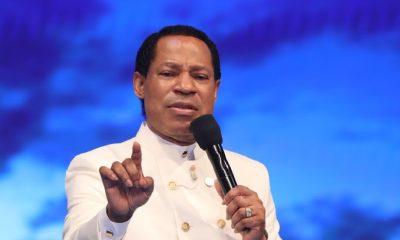
 News18 hours ago
News18 hours agoCOVID-19 Vaccine Killed Pope Francis, says Pastor Oyakhilome
-
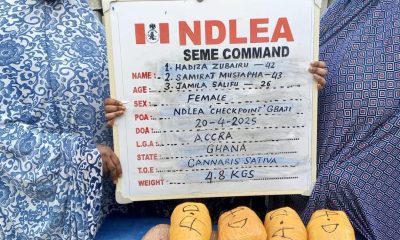
 News11 hours ago
News11 hours agoNDLEA storms Lagos hotel, recovers N1.042billion illicit drug consignments(Photos)
-

 News11 hours ago
News11 hours agoArmy Chief condemns beating, harassing civilians in military uniform says, it’s wrong
-

 News18 hours ago
News18 hours agoUK Tories mull replacing Badenoch as party leader after poor ratings






